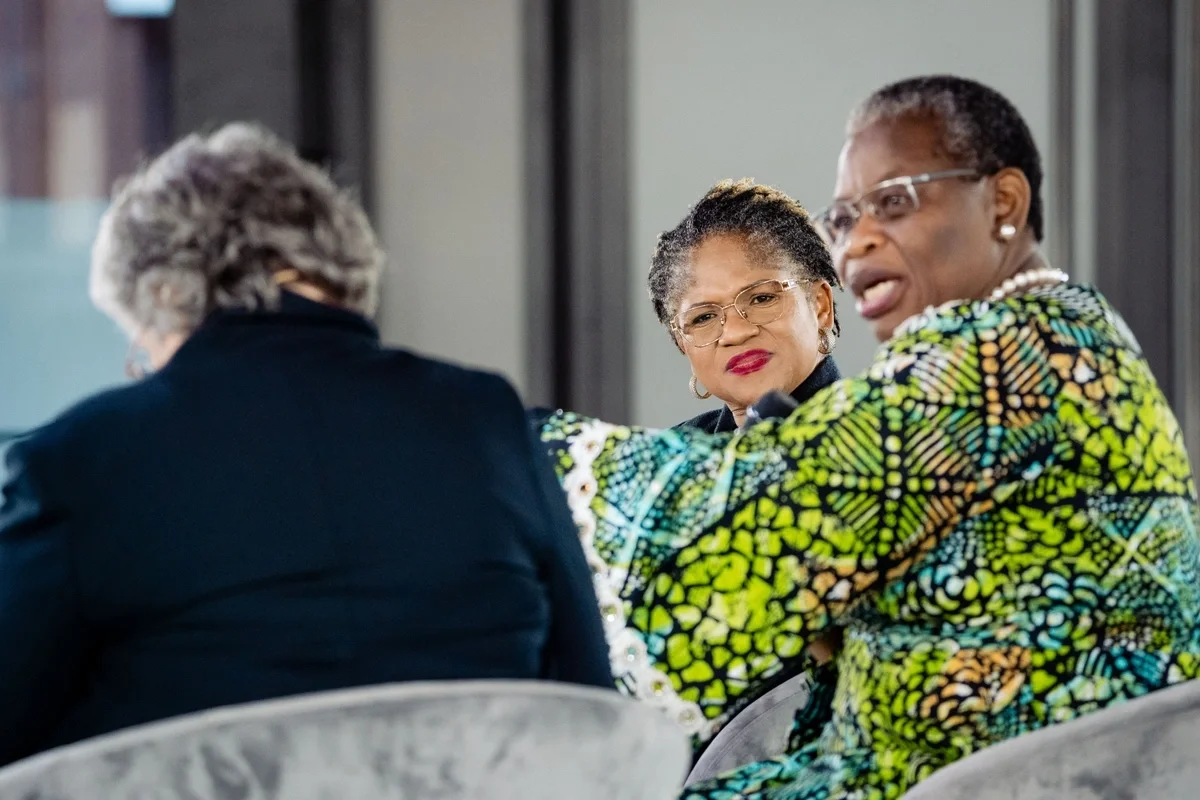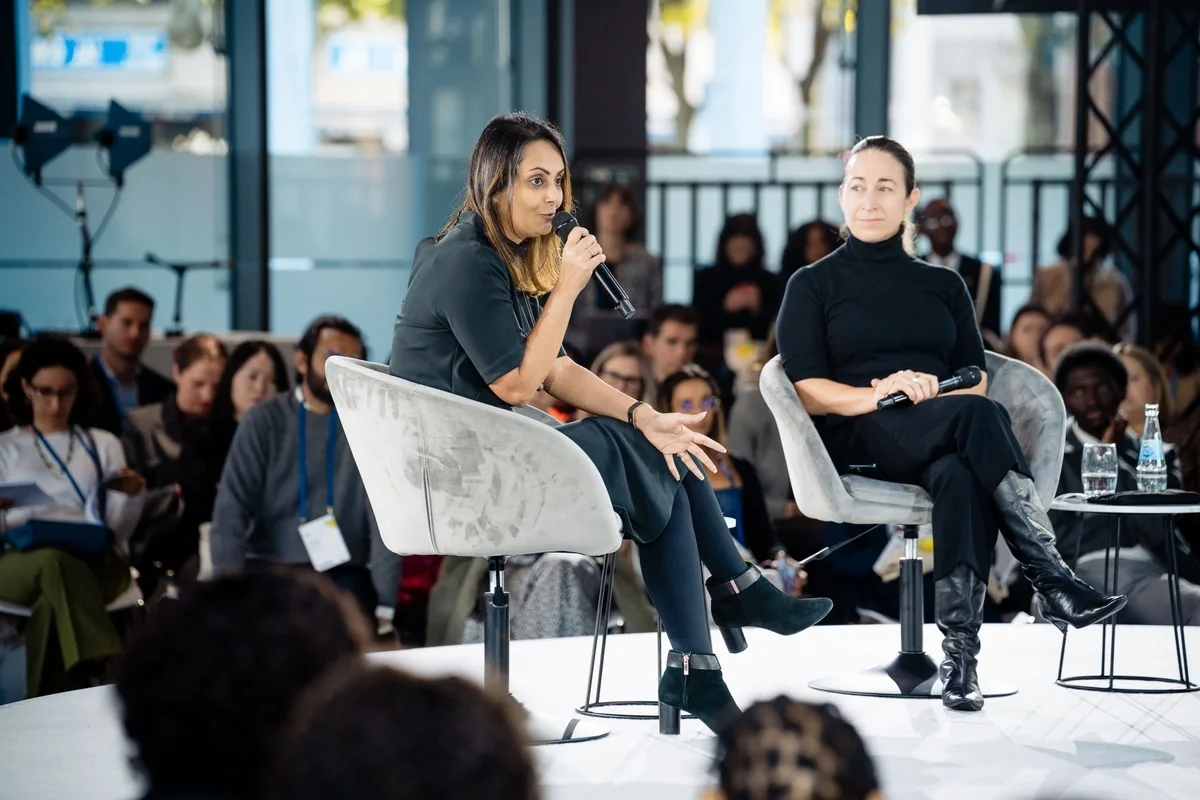
In a packed conference room at the recent World Health Summit, five visionary leaders from government, philanthropy, technology, and delivery issued a wake-up call: AI will only transform women's and children's health if we change the way we build it.
Every day across Africa, women and children die from causes we already know how to prevent. The real challenge is not lack of innovation, but connection: the ability to link knowledge to systems, and systems to people.
Within seconds, I realised this wasn’t going to be another panel about AI’s potential. It was a call to arms, and an insight that the future of AI in health won’t be written in algorithms, but in ‘old-fashioned’ accountability.
A Reset Moment – and Reality Check
Dr. Obiageli Ezekwesili called this a reset moment: the first real chance for Africa to shape its future on equal footing. She reminded us that for centuries, Africa has been a bystander to the revolutions of others. This time, it can define its own.
Her challenge was political as much as technical: AI is not magic; it is simply a mirror. It reflects the governance, priorities, and integrity of those who build it. To use it responsibly, governments must invest in readiness rather than empty rhetoric, and ensure that technology serves the citizens who need it, rather than external agendas.
Inclusion and Proof of Readiness
While Dr. Ezekwesili framed Africa’s reset moment as a test of political leadership, Dr. Ebere Okereke reminded us that leadership means nothing without inclusion.
“You cannot shave our heads in our absence,” she reminded the room. It was a line that drew laughter, but also deep recognition. Her message was clear: women, young people, and African innovators must not only benefit from technology. They must build it.
Where Dr. Ezekwesili called for readiness, Dr. Okereke defined what readiness looks like: systems designed with and by the people they serve. “There isn’t one table,” she said. “There are many, and where there isn’t one, we will build it.”
Together, the two leaders offered a blueprint: real accountability requires shared power. Unless women and local leaders shape data, design, and delivery, AI risks replicating the same patterns of dependency it aims to disrupt.
Dr. Obiageli Ezekwesili and Dr. Ebere Okereke speaking to Susan Mackay at the 2025 World Health Summit (photo courtesy of the World Health Summit).
Financing for Scale, Not Pilots
If leadership and inclusion define the vision, finance determines whether or not that vision becomes real.
Dhun Davar of AVPN reminded the room that finance is not just money – it is commitment made visible. True innovation depends on aligning the right kind of capital with each stage of change.
Davar provided examples of how blended finance and impact bonds can unlock scale – linking investment to measurable outcomes and using philanthropic capital to de-risk private participation. However, her message was blunt: “If you don’t work with governments, it remains a pilot.”
Real change cannot rely on isolated projects or shifting donor priorities. It requires funders and innovators to finance adoption, not experimentation. And it must be done for systems, not showcases. After all, the objective measure of innovation is not in how many pilots we launch, but how many countries can make them work sustainably and on their own terms.
Data, Trust, and the Foundations of AI
If finance is the fuel, then data is the foundation. Yet, as Kat Esser of Amazon Web Services warned, that foundation is only as strong as the trust we build it on.
“Data begins and ends with trust,” she said. “It’s not just about collection – it’s about who owns it and how it’s used.”
Without strong, ethical, and inclusive data systems, AI risks reinforcing inequality, rather than fixing it. The panel called for us to treat data as a public good – as vital as roads or power grids. Locally owned, responsibly governed, and transparently shared data turns technology into trust, and trust into delivery.
Dhun Davar (left) and Kat Esser (right) speaking at Acasus’ ‘AI-Driven Solutions for Women’s and Children's Health’ panel (photo courtesy of the World Health Summit).
Leadership, Demand, and Accountability
Throughout the discussion ran one firm conviction: technology will not fix delivery. Only leadership will.
Fenton Whelan, Acasus’ Founder and Chair, put it clearly: “We don’t have a technology problem; we have an accountability problem.” He called for the same rigour in public systems that drives business performance. “What gets measured, gets done.”
For Whelan, leadership is not a position, but a practice – the discipline of turning intention into impact. He urged governments to create demand for performance, funders to tie resources to results, and implementers to measure what matters most: real improvements for the lives of women and children.
As we closed, one truth was clear: this was not a conversation about potential, but shared commitment to progress. By the next World Health Summit, we aim to report on AI that is scaled responsibly, financed sustainably, and governed ethically for women’s and children’s health.
At Acasus, we will continue working with governments and partners to turn insights into impact, ensuring technology serves not the privileged few, but every woman and child.
This reset moment belongs to those bold enough to lead differently, and to build systems that truly include, listen, and deliver for women and children.
To help contribute to this mission, reach out to our partnerships team at: [email protected].




